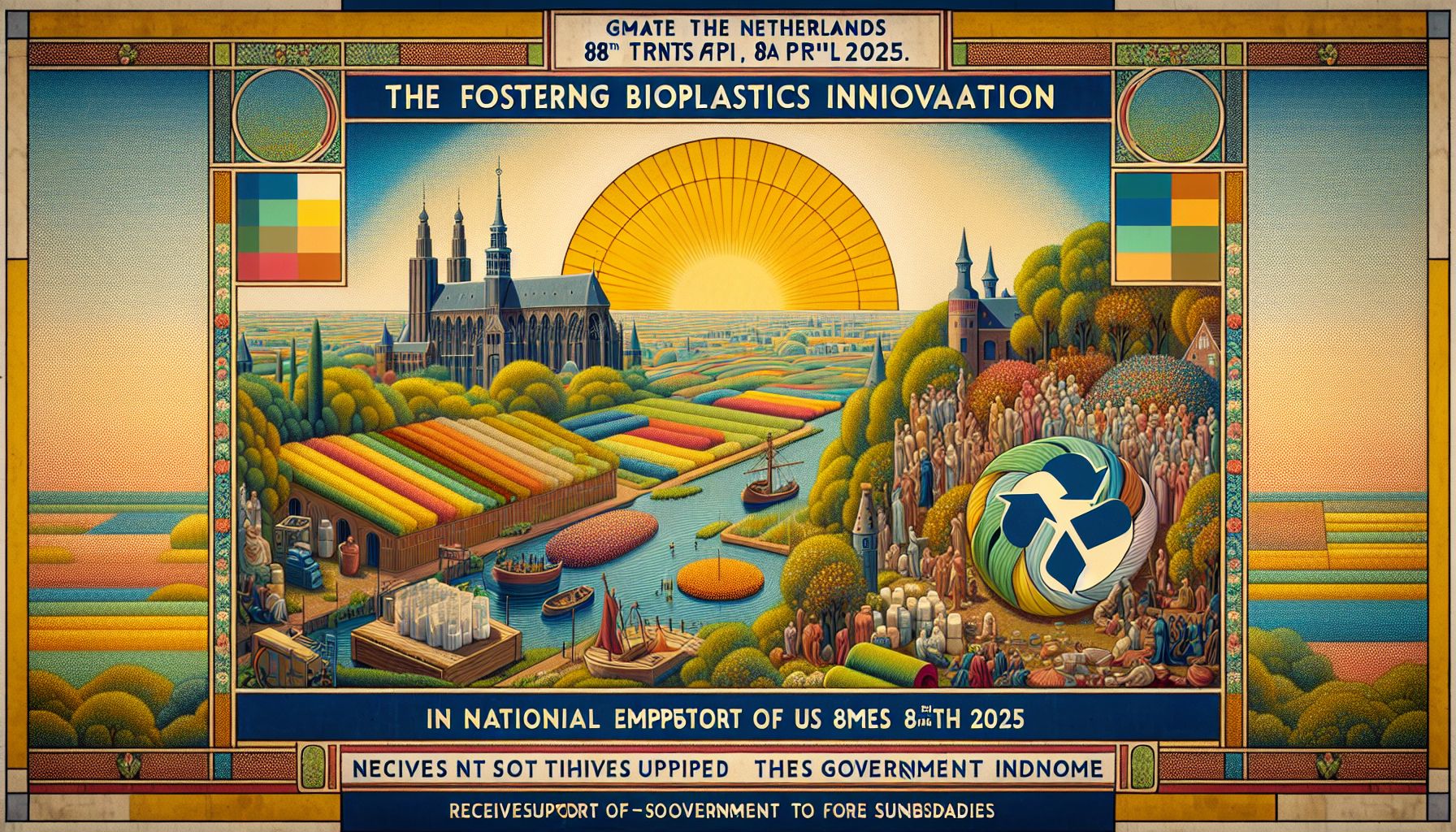Netherlands Supports Bioplastics with New Subsidies for SMEs

The Hague, Tuesday, 1 April 2025.
Starting 8 April 2025, the Dutch government introduces subsidies for SMEs to foster bioplastics innovation, part of a national effort for a circular economy.
Supporting Sustainable Transition
The Dutch government’s latest initiative aims to help plastics processors transition away from fossil-based polymers through subsidies covering 75% of production test costs, with a maximum of €25,000 per application [1]. This support comes at a crucial time, as the Netherlands prepares to implement its National Circular Plastic Standard starting in 2027, which will mandate partial replacement of fossil-based polymers with recycled or bio-based alternatives [1].
Market Growth and Opportunity
This initiative aligns with significant market potential, as the global bioeconomy is currently valued at USD 4 trillion and is projected to expand to USD 30 trillion, representing one-third of global economic value [2]. The bioplastics sector, particularly polyethylene furanoate (PEF), demonstrates strong growth potential, with market projections showing an increase from USD 38.25 billion in 2023 to USD 72.32 billion by 2033, growing at a CAGR of 6.58% [3].
Implementation Details
The subsidy program, known as SOPV (Subsidie Omschakeling Plasticverwerkers), will accept applications from April 8 through October 2, 2025 [1]. Eligible companies must be active plastic processors in the Netherlands and commit to conducting production tests aimed at incorporating recycled or bio-based polymers into their products [1]. Companies can submit up to two applications, provided they involve different production tests [1].
Regulatory Framework
This initiative complements broader Dutch governmental measures against plastic waste, including regulations on single-use plastics and requirements for recycled content in packaging [4]. By 2025, manufacturers must ensure that 25% of PET bottle material consists of recycled content, with this requirement increasing to 30% by 2030 [4]. The government’s approach combines financial support with regulatory requirements to accelerate the transition to sustainable materials [1][4].

